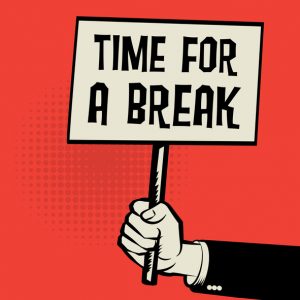Your breaks may either be paid or unpaid.
The majority of American workers are not necessarily familiar with the intricacies of federal and state labor law. However, most employees do know the basics — like getting time and a half for overtime and being able to take a meal break. If your employer isn’t forthcoming about your rights, it can be hard to know what exactly you are entitled to under the law. This includes the ability to take both meal and rest breaks — and what the consequences are if your employer doesn’t give you a meal or rest break.
According to a California employment lawyer, all non-exempt workers are entitled to both meal and rest breaks. Non-exempt workers includes anyone whose wages and hours are governed by the Fair Labor Standards Act (FLSA). If an employee is exempt, then their employer is not required to pay them overtime — or to offer certain other benefits. Generally, to be considered exempt, you must be paid a salary (as opposed to hourly), and must perform either executive, administrative or professional duties.
In California, non-exempt employees are entitled to a 30 minute meal break after 5 hours of work (and an additional meal break every 5 hours thereafter). These meal breaks must be free from all work-related obligations and interruptions. For example, if your boss asks you to be on call when you are on your meal break, then it doesn’t qualify as a break under the law. In addition to a meal break, employees are entitled to a 10 minute rest break every 4 hours. Meal breaks are paid, while rest breaks are unpaid.
Importantly, employers are not permitted to discourage or prevent employees from taking meals, or incentivize skipping meal breaks. While they have to provide these breaks, employers are not required to make sure that employees take them. There may be situations, such as if you are the only security guard at a station, where you cannot take a meal break because no one is available to relieve you. In these cases, you may agree with your employer that you will take meal breaks while on-duty.
So what happens if you miss a meal or rest break, or are asked to work during your meal break? Your employer must pay you an extra hour of pay for a missed meal or rest break. If you miss both a meal break and a rest break, then your employer must pay you two extra hours of pay. This is known as premium pay.
If your employer is not permitting you to take meal or rest break and does not give you premium pay, then you have options to enforce your rights. This may include filling a wage claim with the California Division of Labor Standards Enforcement or working with a California employment lawyer to file a lawsuit against your employer. You have 3 years from the date of the violation to bring a claim; this is known as the statute of limitations.
Missed meal and rest breaks — and the failure of your employer to give you premium pay — can add up to a substantial amount over time. If you are in this situation, you may be able to file a wage and hour claim against your employer. PLBH can help. For more than 50 years, we have helped employees who are subjected to injustice in the workplace. Contact us today at (800) 435-7542 or info@plblaw.com to schedule a consultation with a California employment lawyer.

